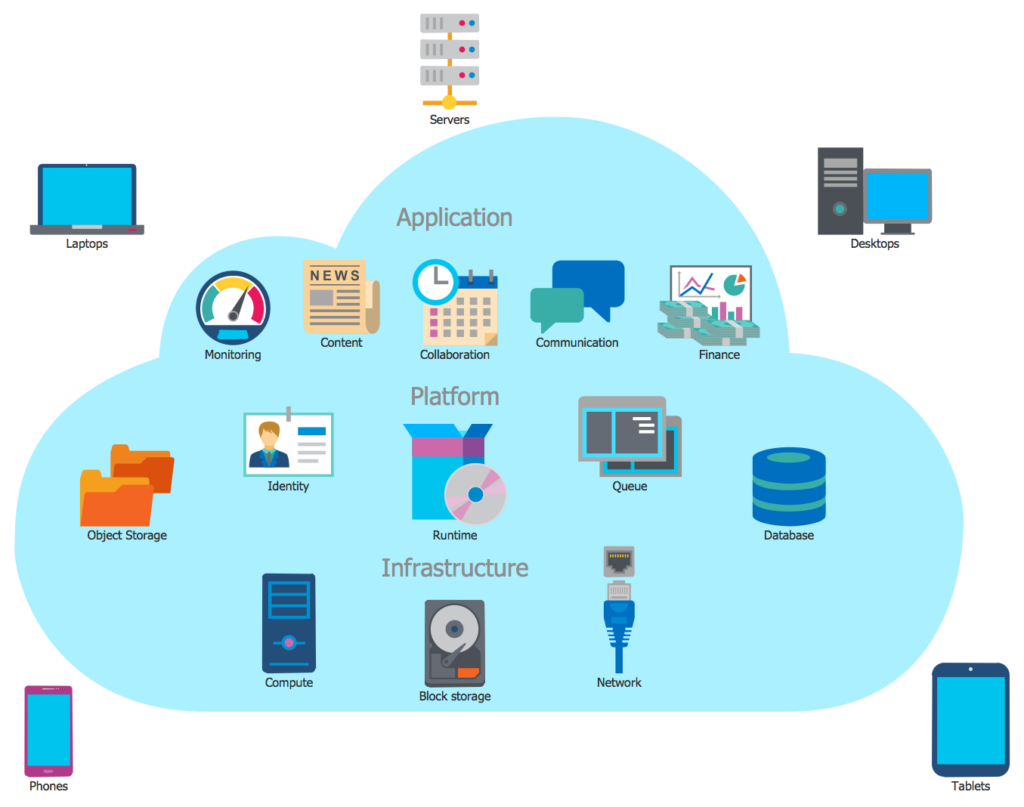In the ever-evolving landscape of technology, the implementation of cloud data platforms has emerged as a game-changer across various sectors of the economy. From healthcare to finance, manufacturing to retail, organizations are harnessing the power of cloud data platforms to overcome challenges, drive innovation, and achieve unprecedented levels of efficiency. In this comprehensive exploration, we delve into the problems faced by different sectors and how cloud data platforms offer transformative solutions, supported by real-world use cases that highlight their efficacy.
Retail
Retailers face intense competition, changing consumer preferences, and the need to deliver personalized shopping experiences across multiple channels. Legacy systems often struggle to provide real-time inventory visibility, customer insights, and seamless omni-channel integration.
As a solution, Cloud data platforms empower retailers to aggregate, analyze, and act upon data from diverse sources, including point-of-sale systems, e-commerce platforms, social media, and customer loyalty programs. By leveraging advanced analytics and AI-driven recommendations, retailers can optimize inventory management, personalize marketing campaigns, and enhance the overall shopping experience.
Amazon, the world’s largest online retailer, relies on cloud data platforms to drive innovation and customer-centricity. By harnessing the power of AWS (Amazon Web Services), Amazon analyzes vast amounts of customer data to offer personalized product recommendations, optimize logistics operations, and anticipate market trends. The company’s seamless integration of cloud-based technologies has redefined retail standards and set new benchmarks for customer satisfaction and operational excellence.
Manufacturing
Manufacturers grapple with complex supply chains, fluctuating demand, and the need for continuous process improvement. Traditional manufacturing systems often lack real-time visibility, making it challenging to optimize production schedules, reduce downtime, and meet customer expectations.
Cloud data platforms offer manufacturers a comprehensive solution for integrating, analyzing, and acting upon data from various sources, including IoT sensors, ERP systems, and supply chain networks. By harnessing the power of predictive analytics, machine learning, and digital twin technology, manufacturers can optimize production processes, anticipate maintenance needs, and enhance product quality.
General Electric (GE) revolutionized its manufacturing operations by deploying a cloud-based data platform across its global facilities. By collecting and analyzing data from sensors embedded in industrial equipment, GE gained valuable insights into asset performance, energy consumption, and maintenance requirements. As a result, the company achieved significant cost savings, reduced unplanned downtime, and improved overall operational efficiency.
Healthcare
Healthcare organizations grapple with vast amounts of data generated from patient records, medical imaging, clinical trials, and research. Managing and analyzing this data efficiently while maintaining compliance with strict regulations poses a significant challenge.
Cloud data platforms provide scalable infrastructure and advanced analytics capabilities that enable healthcare providers to securely store, process, and analyze massive volumes of data in real-time. By leveraging cloud-based solutions, organizations can streamline operations, enhance patient care, and drive medical research breakthroughs.
The Cleveland Clinic, one of the largest and most renowned hospitals in the United States, adopted a cloud data platform to centralize its data management and analytics processes. By consolidating disparate data sources onto a unified platform, the clinic improved clinical decision-making, reduced operational costs, and accelerated research initiatives aimed at improving patient outcomes.
Finance
Financial institutions face intense pressure to innovate, mitigate risks, and deliver personalized services in a highly competitive market. Legacy systems often hinder agility and fail to provide real-time insights, leading to missed opportunities and inefficiencies.
Cloud data platforms empower financial firms to harness the full potential of their data by enabling seamless integration, analysis, and visualization across disparate systems. With features such as data lakes, machine learning, and predictive analytics, cloud platforms enable financial institutions to gain deeper insights into customer behavior, detect fraud in real-time, and optimize investment strategies.
Capital One, a leading financial services provider, leveraged cloud data platforms to enhance its data-driven decision-making capabilities. By migrating its infrastructure to the cloud, Capital One achieved greater agility, scalability, and cost-effectiveness. The company utilized advanced analytics to personalize customer experiences, detect fraudulent activities, and optimize risk management processes, ultimately driving business growth and customer satisfaction.
In conclusion, the implementation of cloud data platforms transcends industry boundaries, offering scalable, agile, and cost-effective solutions to the diverse challenges faced by organizations across sectors. By embracing cloud technology, businesses can unlock the full potential of their data, drive innovation, and stay ahead in today’s competitive landscape. As demonstrated by real-world use cases, the transformative impact of cloud data platforms is reshaping industries, driving growth, and delivering tangible value to stakeholders across the economy.






